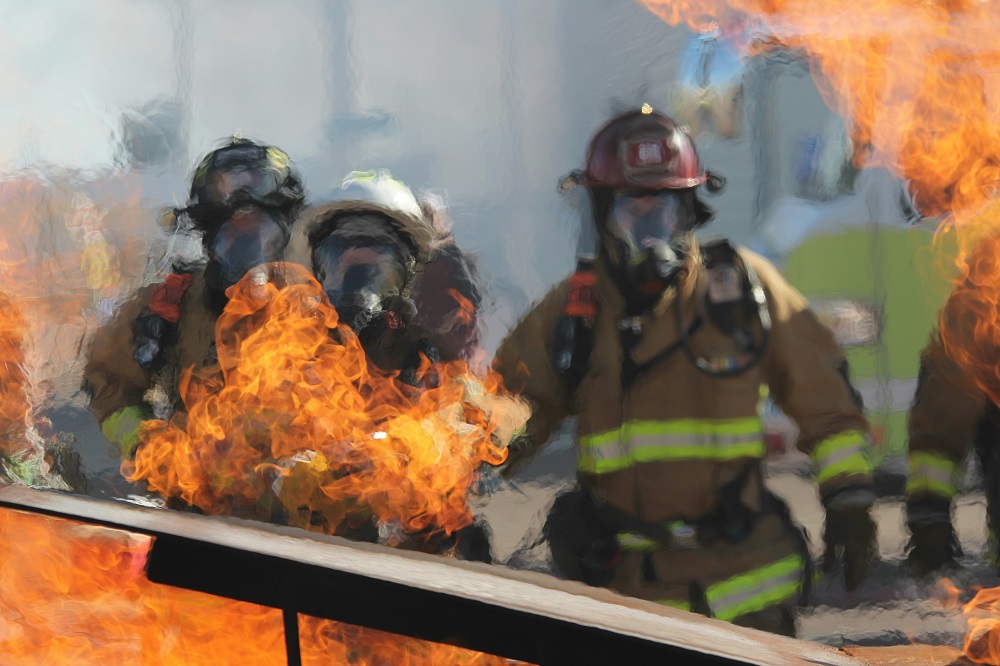Military and civilian firefighters use AFFF (Aqueous Film Forming Foam) for extinguishing fires resulting from flammable gasses and liquids, such as lacquers, petroleum, jet fuel, alcohol, and gasoline. On the surface, though the job gets done, the firefighters are at risk of developing cancer or other ailments because of this toxic foam.
AFFF is a hazardous fire suppressant that contains PFAS (Per- and Polyfluorinated Substances) known as ‘forever chemicals’ because they stay in the human body and environment for the longest time. When this chemical enters your bloodstream, it takes close to four years for its level to reduce, considering there is no further exposure.
Exposure to this toxic foam can lead to various life-threatening health issues, such as kidney cancer. In this article, we will discuss the link between AFFF and this disease and how victims can seek legal help.
How Much PFAS Is Harmful for The Body?
For firefighters or Air Force professionals to know the amount of PFAS they have in their bodies, a blood test measuring the chemical level is required. When PFAS concentration in the blood is between 2 and 20 nanograms/millimeter, chances are they need to be worried about its adverse effects. They must reduce their exposure to this chemical and also get tested for cancer and other ailments.
The National Academies of Sciences, Engineering, and Medicine said that if PFAS blood concentration is below 2 nanograms/millimeter, the chances of any fatal health issues are less.
Keeping in mind the health issues, concerned authorities must take action. TorHoerman Law states that today, government agencies are taking initiatives to destroy PFAS and remove this poisonous foam. It is because several workers who have been exposed to this foam are suffering from health hazards, which also include kidney cancer.
The Link Between AFFF and Kidney Cancer
Workers who reside in areas contaminated by AFFF have a higher chance of kidney damage, sudden renal function changes, and fluctuations in the level of uric acid. This toxic foam comprises 50% to 98% of hazardous chemicals. It affects workers even when they are wearing their protective gear.
The IARC (International Agency for Research on Cancer) sponsored a medical study series that concluded that PFAS results in kidney cancer. Studies made by the American Cancer Society and the CDC (Centers for Disease Control and Prevention) revealed that AFFF is a human carcinogen.
The other medical term for kidney cancer is renal cancer, which is highly common among adults. The disease onset occurs when kidney cells start to change and become out of control. People who suffer from this ailment can notice high blood pressure, flank pain, blood in their urine, and many more. The treatment comprises chemotherapy, surgery, and radiation therapy. Early detection helps with successful treatment.
A few symptoms to watch out for are back pain, sudden weight loss, intermittent fever, fatigue, and a palpable lump in the abdomen and on the side. Once you notice these signs, it is best to contact a doctor to determine whether it is due to AFFF exposure. If the link is confirmed, victims can then use their medical records to file an AFFF foam lawsuit.
How To Seek Legal Help?
It is wise to get in touch with an expert lawyer who can help victims develop and present their cases on their behalf in court. The lawyers have the necessary legal know-how and experience to guide them through the legal path. Victims must share accurate evidence with them that can be used in their cases to make them plausible and sound.
Cases related to kidney cancer due to AFFF exposure are considered to have the highest settlement tiers. There is a possibility of it having an average payout that ranges from $275,000 to $650,000. A lawyer will provide you with the correct data on this based on your case.
Furthermore, there are two reasons why these cases are going to be top-tier. First, the evidence linking this disease to AFFF exposure is strong. Second, this type of cancer is worse than other types occurring due to this toxic foam, for instance, prostate cancer.
Finally, firefighters must ensure that they are aware of the health hazards of AFFF and manage their exposure as much as possible. Since it is impossible to avoid foam exposure during their job, they must urge the organizations they are working for to use safe alternatives. When diagnosed with kidney cancer, it’s crucial to seek legal compensation to get covered for the damages and suffering.

